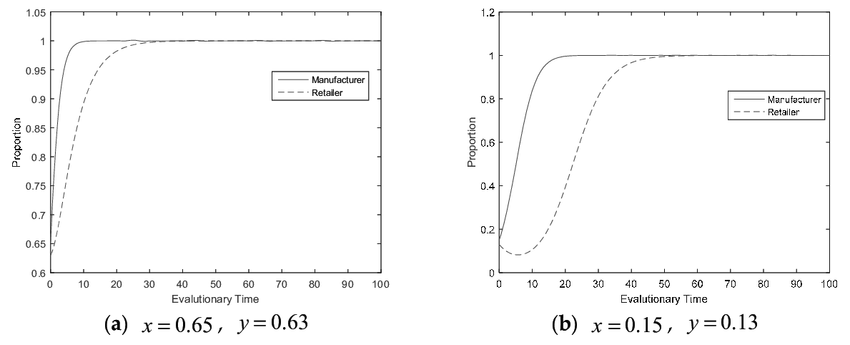Introduction
In the realm of decision-making, the Evolutionary Stable Strategy (ESS) stands as a powerful mental model that explores how individuals and groups make choices to maximize their long-term success. Rooted in evolutionary biology, the ESS concept has found relevance in various aspects of human psychology and is prevalent in our day-to-day lives. By understanding this mental model, we can uncover the underlying biases that influence our decisions and strive for more informed and beneficial outcomes.
Defining the Evolutionary Stable Strategy
The Evolutionary Stable Strategy is a concept derived from evolutionary game theory, which examines how strategies persist over time in a population of individuals. In essence, an ESS is a strategy that, once adopted by a significant portion of a population, resists invasion by alternative strategies. It represents a stable equilibrium that maintains its dominance and evolutionary advantage against competing strategies.
Relevance in Decision-Making
The ESS concept extends beyond the realm of biology and offers valuable insights into decision-making processes. Humans, like other organisms, engage in strategies that maximize their chances of survival and success. This mental model sheds light on how individuals and groups adapt and select strategies that are beneficial in various contexts.
Occurrence of ESS in Different Contexts
- Personal Life Decisions: In personal life decisions, individuals often adopt strategies that have proven successful in the past. For example, a person may stick to a familiar routine or follow a specific career path because they have seen others succeed using similar strategies. However, clinging to these strategies without considering alternative approaches can lead to missed opportunities for growth and personal development.
- Business Scenarios: In the business world, companies often strive to maintain a competitive advantage by adopting strategies that have worked in the past. However, the ESS warns against complacency and the resistance to change. An organization that refuses to adapt to market trends or explore innovative strategies may find itself overtaken by more agile competitors.
- Public Policy-Making: In public policy-making, decision-makers often rely on established frameworks and conventional wisdom. However, the ESS highlights the importance of considering alternative strategies and being open to experimentation. Failure to do so can result in policies that are ineffective or outdated, hindering societal progress.
Mental Biases and Psychological Underpinnings
Several mental biases contribute to the occurrence of the Evolutionary Stable Strategy in decision-making processes. These biases include status quo bias, confirmation bias, and groupthink. The status quo bias leads individuals to favor the current state of affairs and resist change, even when alternative strategies may be more advantageous. Confirmation bias influences individuals to seek information that confirms their pre-existing beliefs, limiting their consideration of alternative strategies. Groupthink, on the other hand, stifles diversity of thought and discourages individuals from challenging prevailing strategies, leading to a perpetuation of suboptimal approaches.
Strategies to Avoid Falling Prey to ESS
- Embrace Cognitive Flexibility: Develop cognitive flexibility by actively seeking out diverse perspectives and considering alternative strategies. Challenge your own assumptions and beliefs, and be open to changing course when evidence suggests a more beneficial approach.
- Encourage Constructive Disagreement: Promote an environment that encourages constructive disagreement and fosters critical thinking. Encourage team members to challenge prevailing strategies, explore alternative viewpoints, and engage in robust discussions to avoid the pitfalls of groupthink.
- Continual Learning and Adaptation: Cultivate a growth mindset and foster a culture of continual learning and adaptation. Encourage experimentation, innovation, and the willingness to learn from failures and successes alike. Embrace a mindset that views change as an opportunity rather than a threat.
Implications of ESS and the Value of Awareness
Understanding the Evolutionary Stable Strategy and its impact on decision-making processes is crucial for achieving optimal outcomes. By recognizing the biases and psychological underpinnings that contribute to the ESS, individuals and groups can actively avoid falling into the trap of stagnation and suboptimal strategies. Awareness of this mental model empowers individuals to make more informed decisions, explore alternative approaches, and adapt to changing circumstances for long-term success.
Conclusion
The Evolutionary Stable Strategy provides valuable insights into decision-making processes and offers a lens through which we can examine our choices. By acknowledging the prevalence of the ESS in personal, business, and public policy decisions, we can actively work to avoid its pitfalls. Embracing cognitive flexibility, encouraging constructive disagreement, and fostering a culture of continual learning and adaptation are essential strategies for avoiding the limitations of the ESS and pursuing more favorable outcomes. By leveraging the understanding of this mental model, we can navigate decision-making with greater awareness and achieve optimal results in our lives and endeavors.
